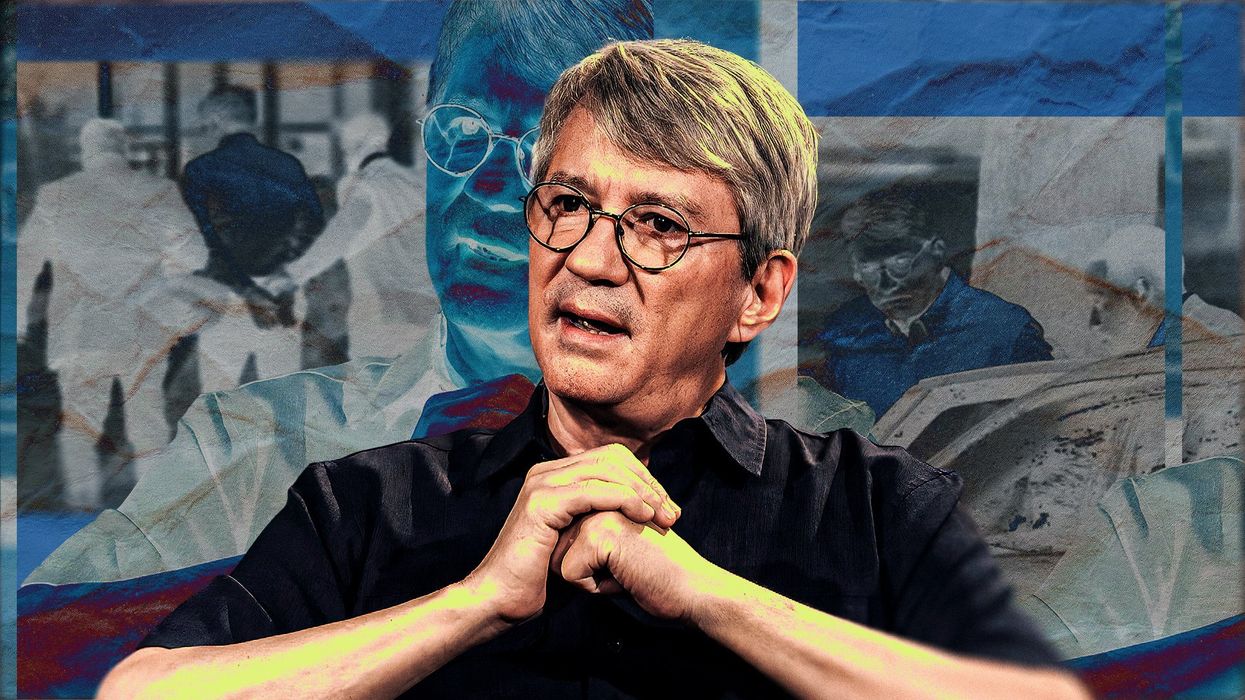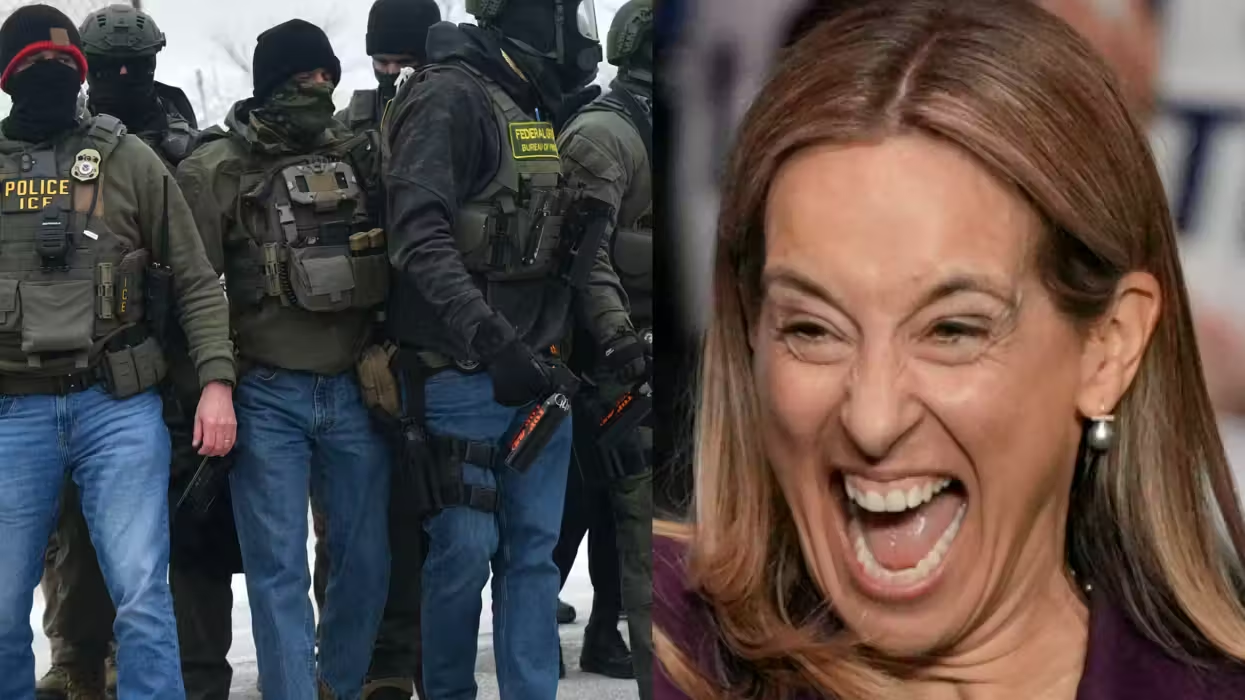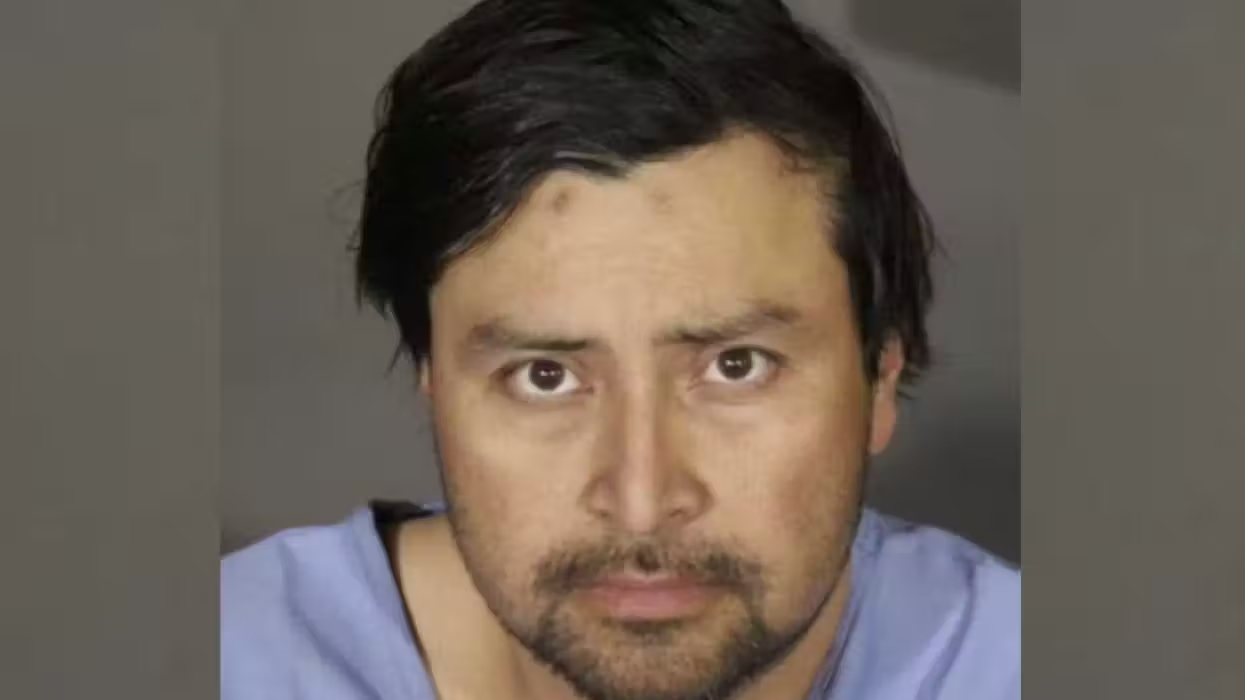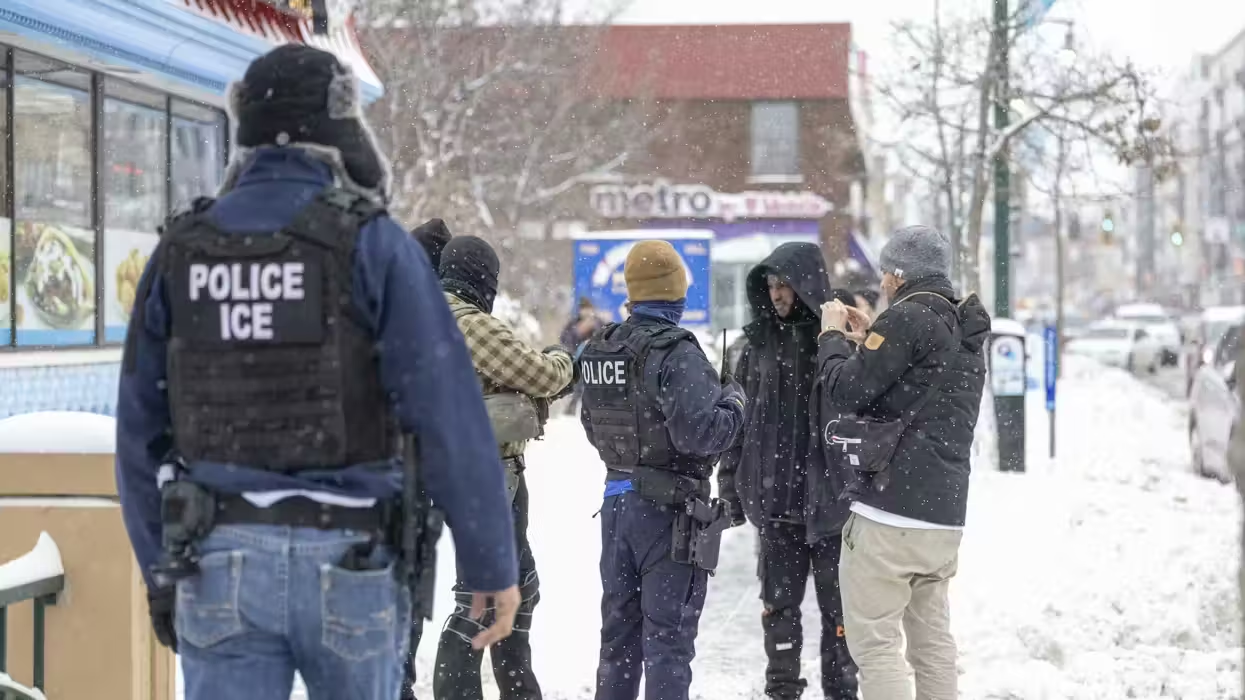
© 2026 Blaze Media LLC. All rights reserved.
The government says that travel to Washington, DC, is not a right and that I directed “threatening statements” at a public official on January 6. Not true.
My federal criminal case already had First Amendment implications when the Justice Department decided to charge me in March with four misdemeanors stemming from my reporting at the U.S. Capitol on January 6, 2021. Now the case may endanger two more basic rights: the right to self-defense and the right to travel.
A federal judge on Tuesday denied a motion by my attorneys to have those restrictions removed.
My next hearing before Judge Cooper is scheduled for June 3. This one should be interesting.
The government absurdly contends that “travel to the District of Columbia is not a ‘right,’ particularly for someone who does not reside in or nearby the District, while on pretrial release.” To be clear, I’m not restricted from traveling to the nation’s capital, but I am required to notify my court-assigned pretrial services officer when I am on my way to the District.
District Judge Christopher R. Cooper issued a minute order denying both this contention and our request for the restoration of my Second Amendment right to carry a gun for personal protection.
Cooper’s ruling is unusual. By issuing a minute order, rather than responding directly to our legal arguments — case precedents, listed statutes, etc. — Cooper leaves us no choice but to seek an expedited appeal.
In simple terms, we have to go over his head.
Not a danger or a flight risk
The dispute stems from a motion my attorneys submitted last month objecting to two pretrial restrictions the court imposed on me: that I relinquish my firearms and report all my travel to my pretrial services officer in North Carolina.
Because I’m only charged with nonviolent misdemeanors, the government did not ask the court to hold me in pretrial detention. That’s typically been the case with other misdemeanor January 6 defendants.
I’m also required to notify my PSO of any interactions I have with law enforcement. Prosecutors made a notable adjustment in my case, however. The standard language reads: “The defendant must report as soon as possible, to the pretrial services or supervising officer, every contact with law enforcement personnel, including arrests, questioning, or traffic stops.”
As written, that would have required me to report my meetings, phone calls, and private messages with the many Capitol Police and D.C. Metropolitan Police officers I’ve developed as named and unnamed sources in my reporting. Fortunately, the Justice Department amicably agreed to reword this restriction to exclude those law enforcement interactions.
I’m also barred from texting FBI Special Agent Craig Noyes, the lead investigator in my case. That’s probably just as well.
The other pretrial restrictions are predicated on two premises — which the government must prove — that I am a “flight risk” and a “danger to society.”
The Justice Department obviously doesn’t consider me a flight risk. I’m free to travel internationally if I want. As for any “danger” I might pose to society, I have no criminal history whatsoever. There seems to be no rational or legal justification for taking away my Second Amendment right to self-defense, though the government argues that my North Carolina PSO could be placed in some imagined danger if and when he makes unannounced visits to my residence.
In fact, my PSO has told me directly that he does not consider me a risk. The problem is apparently coming from the D.C.-based PSO, who is simply reciting to the judge — by rote — “this is how we always do it.” But that is not always the case. Other January 6 misdemeanor defendants have had their firearms rights restored pretrial, precisely for the same reasons we are arguing in my case.
Our objection to the firearms restriction is fairly straightforward: I’ve received numerous threats online, and in two instances, actual stalkers have flown halfway across the country to confront me in person about stories I’ve refused to cover.
Our challenge to the notification requirement for when I travel to D.C. is more complex. My legal team believes this presents a “separation of powers” problem because I meet with Congress members, their staff, and various committees’ investigators. We do not believe it is legally appropriate to notify either the Justice Department (executive branch) or the court (judicial branch) of my meetings with members or staff of the legislative branch.
A misunderstanding with the judge
Here I should emphasize that my travel restrictions are practically nonexistent. All other J6 defendants are not allowed to visit Washington, D.C., except for court hearings and their trials. The Justice Department did not ask for that restriction on me.
The only caveat is the notification requirement. Our objection to it caused an unfortunate misunderstanding with Judge Cooper.
I had my first phone chat in April with my North Carolina pretrial services officer, a few days after a Zoom appearance before a Washington, D.C., magistrate that was largely a repeat of my March 1 arraignment in Dallas, minus the leg irons and belly chain. He’s a friendly, amicable fellow who was taken aback at my unique case and my laxer travel restrictions. During that call, I unwittingly told him we’d soon be filing motions to amend my pretrial restrictions.
My North Carolina PSO then notified my D.C. PSO of that conversation, and somehow, either by unintended miscommunication or deliberate misrepresentation, the D.C. PSO notified the court that I had “no intention” of following my pretrial restrictions. This resulted in Cooper issuing a publicly posted minute order admonishing me to adhere to all my pretrial restrictions immediately, or suffer the consequences.
The absurdity, of course, is that I was adhering to all restrictions that I’d agreed to in my first two court hearings. The only one of those restrictions I’d not yet had the opportunity to fulfill was the transfer of my firearms outside of my residence because I was still in Texas and had not yet returned to North Carolina to empty my gun safe and deliver those weapons to a friend’s safe at his home.
My first encounter with Judge Cooper occurred during my April 3 arraignment hearing, during which he needlessly reprimanded me for not complying with my pretrial restrictions. Although I wanted to hit the “privacy” button for a quick consultation with my attorneys to object to this unnecessary directive from the judge, I bit my lip. I uncharacteristically replied, “Yes, your Honor.”
To be perfectly transparent, my attorneys had hoped prosecutors would seek a travel ban, considering how much of my investigative work takes me to D.C. That was a much more straightforward constitutional question.
I can only surmise that prosecutors had already war-gamed this scenario during the two-and-a-half-month reprieve before my March 1 surrender and decided it wasn’t a public relations black eye they needed.
My attorney, William Shipley, highlighted the absurdity of the government’s response on X and then in the motion the judge denied on Tuesday. “This opposition is some of the weakest legal work I've seen come out of DOJ over the past 30+ months,” he wrote. Shipley was a federal prosecutor for more than 20 years.
My response was more pointed.
In his motion, Shipley noted: “The fact that neither the Opposition’s author nor any supervisor in the Department of Justice saw reason to question the inclusion of this sentence [“Travel to the District of Columbia is not a ‘right’] reflects the near comedic level of legal “analysis” reflected in the Opposition.”
“The constitutional right to travel from one State to another … occupies a position fundamental to the concept of our Federal Union,” Shipley wrote. He continued:
It is a right that has been firmly established and repeatedly recognized. In Crandall v. Nevada, invalidating a Nevada tax on every person leaving the State by common carrier, the Court took as its guide the statement of Chief Justice Taney in the Passenger Cases: “For all the great purposes for which the Federal government was formed, we are one people, with one common country. We are all citizens of the United States; and, as members of the same community, must have the right to pass and repass through every part of it without interruption, as freely as in our own States.”
Our arguments ignored
Judge Cooper’s latest minute order reveals something far more troubling. After the first one, in which I bit my lip at his admonishment for something I was not doing, I assumed the D.C. PSO had mistakenly informed Cooper of my alleged “non-compliance” with existing pretrial restrictions. This second minute order shows that this PSO is not being entirely forthright with my judge.
The first thing Cooper said in the order seems to validate my assumption: “Pretrial Services has informed the Court that it objects to this late-breaking request, citing safety concerns …”
Cooper makes it clear that rather than addressing our motion’s legal arguments, he is instead responding directly to the PSO’s assertions.
But it’s the next statement in the order that really upset me: “These safety concerns are heightened because of Mr. Baker’s alleged threatening statements directed at specific public officials during the riot on January 6, 2021.”
I made no threatening statements before, on, or after January 6, much less any directed at “specific public officials.” This is a falsehood, apparently delivered to Cooper from the PSO.
The judge then dropped another one on me: “Second, requiring Mr. Baker to provide Pretrial Service notice prior to entering the District is appropriate given the gravity of his purported misconduct inside the Capitol on January 6, which was allegedly targeted at high-ranking federal lawmakers.”
First, there was no misconduct while at the Capitol. None. Second, my jokingly calling Nancy Pelosi a “bitch” happened on video while sharing adult beverages at a hotel in Virginia after I’d left the Capitol.
Is this a new legal precedent with which I’m not familiar? Is using non-threatening pejoratives when referring to “high-ranking” lawmakers over drinks now grounds for establishing that someone is a threat to society? If so, the courts should never allow any non-residents to visit our nation’s capital. Who among us is not guilty of referring to lawmakers with all manner of disparaging remarks?
My next hearing before Judge Cooper is scheduled for June 3. This one should be interesting. My attorneys intend to address these minute orders prior to that hearing while at the same time preparing the expedited appeal. I may still have to bite my own lip, but I fully expect a spirited demonstration from my legal team.
We’re also awaiting a response to House Judiciary Chairman Jim Jordan’s scathing letter to Matthew Graves, U.S. attorney for the District of Columbia, outlining “serious concerns” about the Justice Department’s "selective prosecution” of yours truly. Jordan (R-Ohio) demanded a response from Graves by March 26. Jordan has received no response as of publication.Want to leave a tip?
We answer to you. Help keep our content free of advertisers and big tech censorship by leaving a tip today.
Want to join the conversation?
Already a subscriber?
Contributor
Steve Baker is an opinion contributor for Blaze News and an investigative journalist.
SteveBakerUSA
Steve Baker
Contributor
Steve Baker is an opinion contributor for Blaze News and an investigative journalist.
@SteveBakerUSA →more stories
Related Content
© 2026 Blaze Media LLC. All rights reserved.
Get the stories that matter most delivered directly to your inbox.
By signing up, you agree to our Privacy Policy and Terms of Use, and agree to receive content that may sometimes include advertisements. You may opt out at any time.






